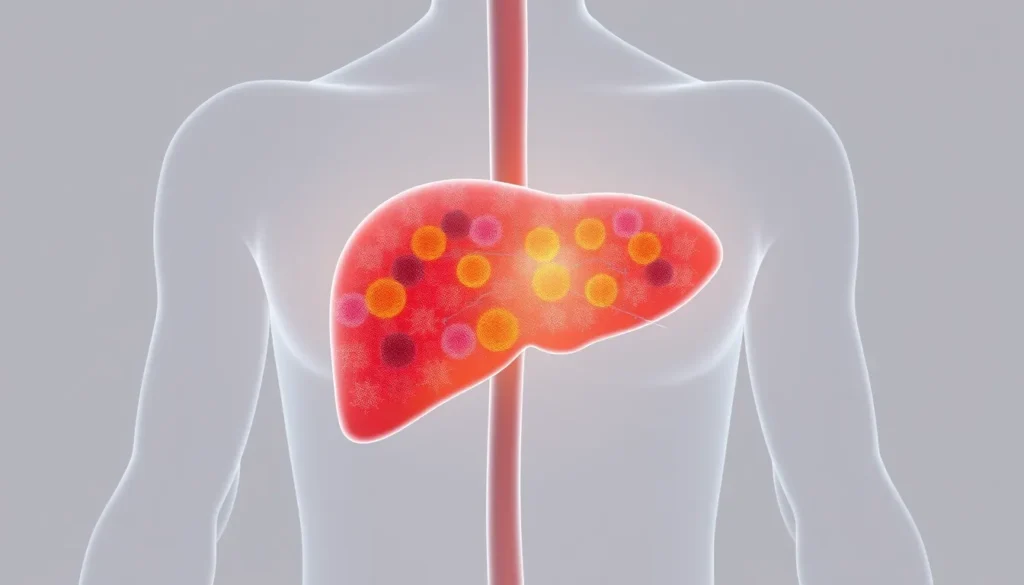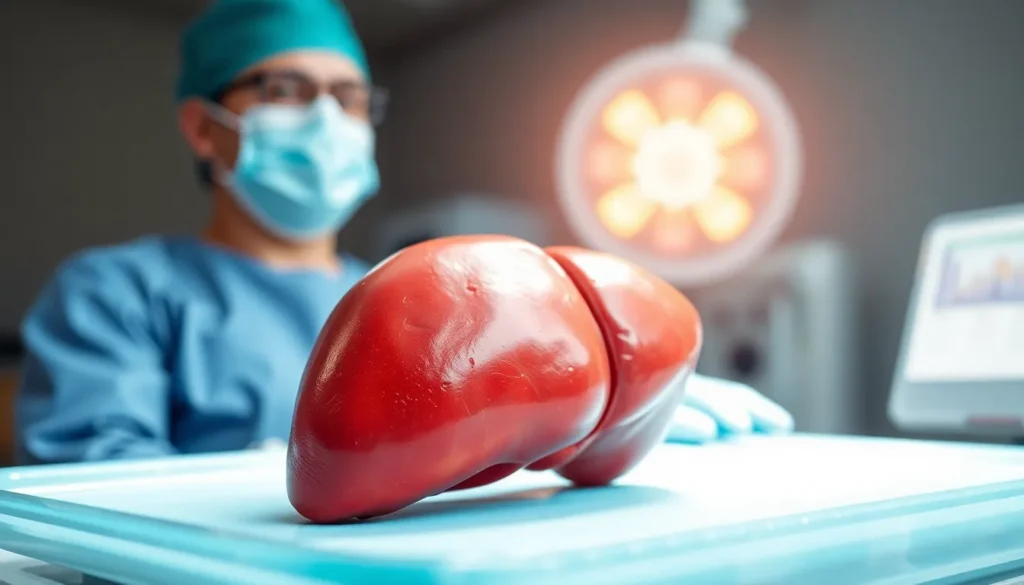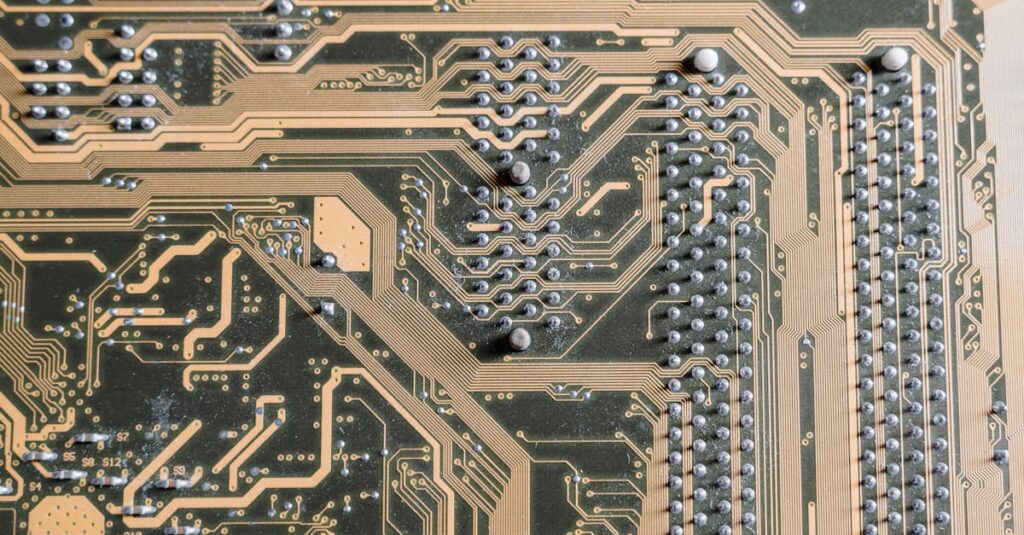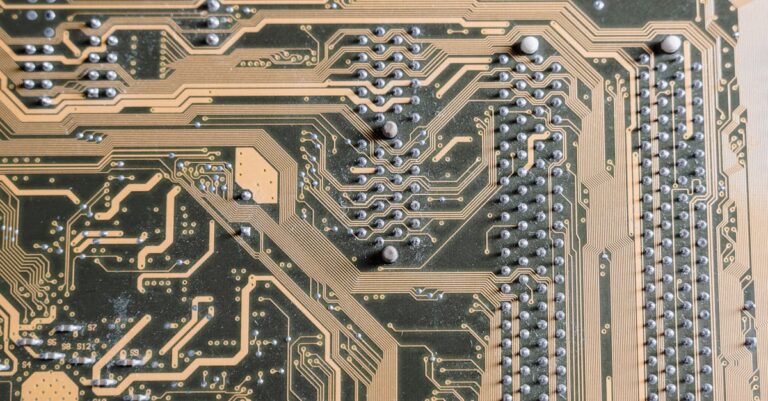Table of Contents
ToggleEver wondered if your liver has superhero powers? Well, it might just be the unsung hero of your body, capable of regeneration like a magical creature in a fantasy novel. While most organs throw in the towel after a little damage, the liver says, “Not today!” It can bounce back from a surprising amount of wear and tear, making it the ultimate comeback kid.
Can Your Liver Grow Back?
The liver has a remarkable capability to regenerate. Studies show that it can restore itself even after surgical removal of up to 75 percent of its tissue. This unique feature stems from the liver’s ability to produce new cells rapidly.
Liver cells, known as hepatocytes, play a crucial role in this process. They divide and multiply in response to injury or the removal of liver tissue. In a healthy individual, this regeneration can occur within a few weeks to months, depending on the extent of damage.
It’s important to recognize the conditions that support liver regeneration. Proper nutrition, hydration, and abstaining from alcohol consumption significantly enhance recovery. Nutrients like protein, vitamins, and minerals aid in cell growth and function. Additionally, chronic liver diseases, such as cirrhosis, can hinder this ability. When scar tissue develops, the liver’s regenerative capacity diminishes.
Recent research highlights the liver’s ability to adapt as well. For instance, when one side of the liver is removed, the other side compensates, increasing in size. This adaptation helps maintain liver function despite the loss of tissue.
Specific diseases can affect regeneration rates. Conditions like hepatitis, fatty liver disease, and severe infections may impair recovery efforts. Therefore, maintaining overall liver health is crucial for maximizing regenerative potential.
Factors such as age and lifestyle also impact regeneration. Younger individuals often exhibit more robust liver regeneration compared to older adults. Lifestyle choices, such as a balanced diet and regular exercise, contribute significantly to liver health.
The liver does indeed grow back after damage, given optimal conditions and healthy lifestyle practices. The fascinating regenerative abilities of the liver stand as a testament to its essential role in maintaining overall health.
The Liver’s Regenerative Ability

The liver’s ability to regenerate is remarkable. It can restore itself after significant damage or loss.
How the Liver Regenerates
Hepatocytes, the primary liver cells, play a crucial role in regeneration. These cells rapidly divide and multiply when liver tissue is lost. The process begins with signaling molecules that stimulate cell growth and tissue repair. When damage occurs, the surrounding healthy cells activate, promoting regeneration. Connections among cells strengthen, allowing for efficient recovery. Restoration can happen even after the removal of 75 percent of the liver. This impressive capability emphasizes the liver’s resilience and importance in overall health.
Factors Influencing Regeneration
Age significantly impacts the liver’s regeneration speed. Younger individuals generally experience faster recovery compared to older adults. Lifestyle choices, such as diet and exercise, also affect regeneration rates. Proper nutrition, including protein and vitamins, enhances cell growth. Hydration supports overall liver function, promoting a conducive environment for regeneration. Chronic diseases, like cirrhosis, can impede this natural process, hindering recovery. Therefore, maintaining healthy habits is essential for optimal liver regeneration.
Conditions Affecting Liver Regrowth
Liver regeneration depends on various conditions that can enhance or inhibit its remarkable abilities. Understanding these factors is crucial for maintaining optimal liver health.
Liver Diseases
Chronic liver diseases, such as cirrhosis and hepatitis, significantly impair liver regrowth. Cirrhosis leads to extensive scarring, limiting the organ’s ability to regenerate. Hepatitis inflammation disrupts normal hepatic functioning, further complicating recovery. Each disease presents challenges that reduce cell proliferation and overall recovery capacity. Patients with liver diseases may require careful management to support remaining liver tissue and ensure regrowth remains possible.
Surgical Interventions
Surgical procedures like partial hepatectomy can affect liver renewal. In this operation, surgeons remove a portion of the liver, prompting regeneration. However, the success of this regrowth hinges on patient health and underlying liver function. Factors such as blood supply and overall nutritional status impact recovery. Each individual’s response to surgery varies, with younger patients often experiencing more robust regeneration than older individuals. Effective post-surgery care supports the liver’s healing process and encourages optimal regrowth.
The Science Behind Liver Regeneration
Liver regeneration involves a remarkable process of cell production and tissue repair. The liver can regenerate itself rapidly, producing new hepatocytes in response to injury. When up to 75 percent of liver tissue undergoes surgical removal, the remaining tissue compensates by increasing in size. This unique capability stands out compared to other organs, which often fail after damage.
Cell growth and tissue repair begin with signaling molecules that activate surrounding healthy cells. Proper nutrition plays a vital role in this process. Nutrients, including proteins, vitamins, and minerals, support cell function and growth. Hydration contributes to liver health as well, making it essential for optimal recovery.
Chronic liver diseases, like cirrhosis and hepatitis, impede the liver’s regenerative potential. Extensive scarring from cirrhosis disrupts normal liver architecture. Inflammation caused by hepatitis also complicates the recovery process, making it difficult for the liver to regenerate effectively.
Patients undergoing surgical interventions such as partial hepatectomy need to consider various factors for successful regeneration. Health status, blood supply, and nutritional support significantly influence healing outcomes. Post-surgery care remains crucial, providing the necessary conditions for the liver to heal and regenerate.
Younger individuals often exhibit a more robust regenerative response. Age influences recovery rates, with younger cells generally dividing and multiplying more efficiently. Lifestyle choices, including abstaining from alcohol, significantly impact liver regeneration as well. Prioritizing healthy habits fosters better liver health, ultimately enhancing its remarkable ability to grow back.
Implications for Liver Health
Liver regeneration significantly impacts overall health and wellness. Conditions enhancing liver regrowth, like adequate nutrition and hydration, play a critical role in recovery. Nutrients such as protein, vitamins, and minerals support cell growth, reinforcing the liver’s regenerative capabilities. Alcohol consumption negatively affects liver function, impairing its ability to restore itself.
Chronic liver diseases, including cirrhosis and hepatitis, create barriers to regeneration. Cirrhosis introduces extensive scarring to the liver, disrupting its normal architecture and reducing recovery potential. Hepatitis causes inflammation, further complicating the regeneration process. Surgical procedures, such as partial hepatectomy, challenge liver renewal, making success depend on factors like patient health, blood supply, and nutritional support.
Post-surgery care becomes essential in promoting liver healing and encouraging optimal regrowth. Effective recovery requires adherence to a nutritious diet and a healthy lifestyle. Age influences liver regeneration, with younger individuals often achieving more robust recovery due to efficient cell division.
Signals from molecules in the liver initiate cell growth and repair mechanisms. Activation of surrounding healthy cells fosters recovery, making the body’s innate resilience remarkable. Liver health can be sustained by maintaining proper hydration and nutritional intake, ensuring the organ performs its vital functions.
Awareness of the implications for liver health not only emphasizes the liver’s role in recovery but also highlights the importance of preventative measures. Support for liver function translates to overall health benefits, making proactive lifestyle choices essential for optimal regeneration.
The liver’s extraordinary ability to regenerate highlights its crucial role in overall health. By understanding the factors that support this regeneration, individuals can take proactive steps to enhance their liver function. Proper nutrition hydration and lifestyle choices play a pivotal role in maintaining this remarkable organ.
Awareness of the liver’s regenerative capabilities encourages a healthier approach to living. By prioritizing liver health through mindful habits individuals can ensure their liver remains resilient and capable of recovery. This commitment not only benefits liver function but also contributes to overall well-being.







